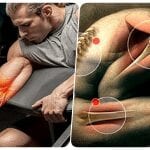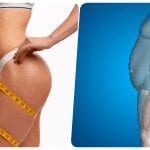What Is Morning Stiffness?
Stiff muscles and joints and neck and back pain are all symptoms that a large number of us experience first thing in the morning!
Morning stiffness and pain affects thousands of people. Although there are specific conditions that cause this, often it’s self-inflicted.
So What Causes Morning Stiffness?
People who suffer from conditions such as arthritis, fibromyalgia and rheumatic disorders do have a high rate of morning stiffness and associated pain. However, for the rest of us, non-medical reasons are usually behind the majority of our problems.
READ: Natural Relief for Neck Pain? Acupuncture as a Treatment Option
Let’s take a look at the main causes first since they may give clues as to why people with certain medical conditions can also be affected.
The main symptoms are:
- Pain and stiffness in one or more joints — especially the hips and knees
- Pain and stiffness in one or more muscles
- Lower back pain and stiffness
- Neck stiffness and pain

Medical and Other Causes of Morning Stiffness and Pain
As previously mentioned there are various things that can lead to morning stiffness and pain. These are divided into two groups – medical causes and other types of causes. We’ll look at the medical causes first.
Medical Causes:
- Fibromyalgia — Has various signs and symptoms such as pain in the muscles along with tender joints. People who have this condition often experience morning stiffness. This may have to do with tension in the muscles before going to bed.
- Osteoarthritis — As with fibromyalgia, people with arthritis can also experience morning stiffness. Normally with osteoarthritis, the stiffness and pain tends to wear off within half an hour, but not always.
- Rheumatoid arthritis — As with the conditions above, rheumatoid arthritis can lead to morning stiffness and pain. The pain and stiffness doesn’t wear off quickly, if at all.
Not everyone who suffers morning stiffness and pain suffers from the above conditions. If this is the case then we need to look at other factors such as:
- Lack of exercise — This leads to stiffening of muscles and joints before going to bed. This can cause the muscles or joints to lock while sleeping, especially if your bed or mattress does not give you proper healthy support.
READ: How To Cure a Stiff Neck Or Shoulder To Ease the Pain?
- Poor posture — Poor posture in the way you sit, the work that you do or the activities you enjoy, can lead to muscle tension, injury and pain. Furthermore, the effect on the spine, neck, shoulders and other joints is cumulative. This means that the wear and tear gradually builds up over a time. Eventually, this can mean having problems when lying in bed and getting up in the morning. In addition, having poor posture while you sleep – perhaps due to an old mattress – can lock joints and muscles into harmful positions leading to morning stiffness, as well as cumulative injury.
- Bed mattress not supportive — A mattress that is worn out or of poor quality will not only cause morning stiffness and pain, but also leads to lack of quality sleep. As mentioned previously, poor support while sleeping can lead to cumulative injuries. You can also have a buildup of lactic acid in the muscles when you constantly have poor posture while sleeping. The lactic acid adds to the risk of stiff muscles.
- Overweight — Being overweight adds pressure to your joints and muscles even when you’re asleep. Not only does this restrict blood flow but it can also lead to stiffness and pain.
- Poor diet — This can lead to all kinds of problems especially if the diet is lacking in vitamins and minerals and all the other essential nutrients. Lethargy is one result, leading to poor posture, tired muscles and aching joints. The muscles and joints then tend to stiffen up overnight.
- Sleep Problems — Having difficulty sleeping leads to tension and lethargy during the day. This can then be made worse by muscles and joints tightening up overnight.
- Environment too damp or cold — Dampness and cold leads to stiffening of the muscles and joints, usually due to the posture adopted to keep warm in bed e.g. curled up tightly.
PLEASE CLICK BELOW ON NEXT PAGE TO CONTINUE READING

5 Symptoms You Absolutely Need To Take A Break From Working Out


